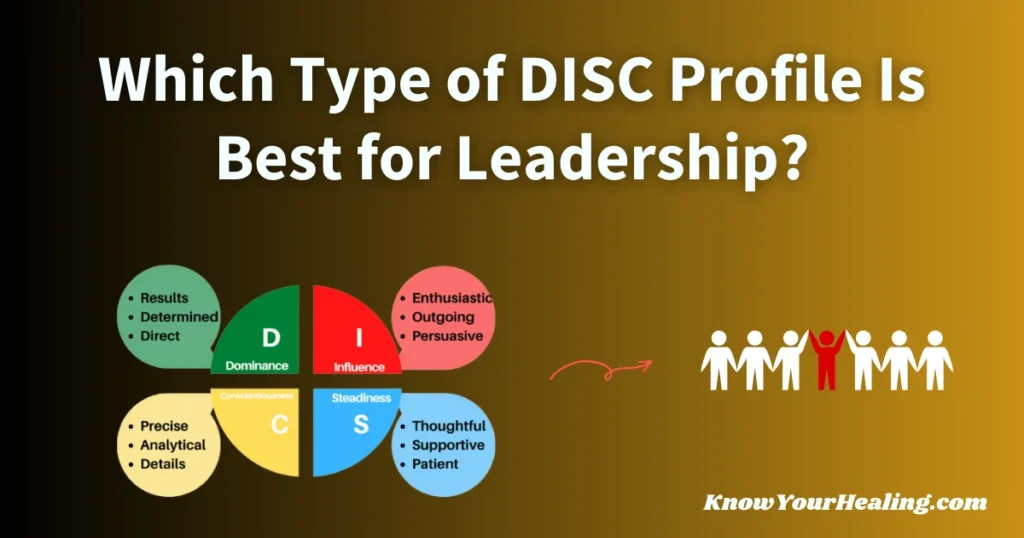Nursing leadership interview questions can be daunting, especially for new leadership roles. Preparing well for these interviews increases confidence and helps demonstrate leadership skills effectively.
This article offers practical answers to the 75 most common nursing leadership interview questions to help candidates effectively communicate their leadership abilities and experiences.
These questions are designed to evaluate a candidate’s ability to manage teams, handle stressful situations, and ensure the highest standards of patient care.
With real-world examples and carefully crafted responses, candidates can learn to highlight their strengths and address potential challenges.
This comprehensive guide is a must-read for anyone looking to excel in a nursing leadership interview.
75 Nursing Leadership Interview Questions and Best Answers

Tell me about yourself
Answer: “I recently graduated from OOO Nursing School, gaining hands-on experience in various clinical settings. I am passionate about providing high-quality patient care and am eager to bring my skills to a leadership role in nursing.”
Why did you choose nursing as a career?
Answer: “I chose nursing because I deeply desire to help others and positively impact their lives. Nursing allows me to combine my interest in science with my passion for caring for people.”
What are your strengths as a nurse?
Answer: “My strengths include strong communication skills, empathy, attention to detail, and the ability to work well under pressure. These qualities help me provide excellent patient care and collaborate effectively with my colleagues.”
What are your weaknesses as a nurse?
Answer: “One area I’m working on is delegating tasks more effectively. I tend to take on too much myself, but I’m learning to trust my team and assign responsibilities appropriately.”
How do you handle stress and pressure?
Answer: “I handle stress by staying organized, prioritizing tasks, and taking breaks when needed. I also practice mindfulness and deep breathing exercises to stay calm and focused.”
Describe when you had to handle a difficult patient
Answer: “During my clinical rotation, I had a patient who was very anxious and uncooperative. I took the time to listen to their concerns, provided reassurance, and involved them in their care plan, which helped to alleviate their anxiety and improve their cooperation.”
How do you prioritize your tasks during a busy shift?
Answer: “I prioritize tasks based on the urgency and importance of patient needs. I use a checklist and regularly reassess my priorities throughout the shift to ensure that critical tasks are completed first.”
How do you handle a situation where you disagree with a colleague?
Answer: “I believe in open communication and addressing disagreements professionally. I would discuss the issue with my colleagues privately, listen to their perspective, and work together to find a solution that benefits our patients.”
Describe a leadership experience you have had
Answer: “During my final year of nursing school, I was the team leader for a group project where we developed a patient education program. I coordinated tasks, ensured everyone met deadlines, and facilitated group discussions, which resulted in a successful project.”
How do you ensure patient confidentiality?
Answer: “I adhere strictly to HIPAA guidelines and hospital policies to protect patient information. I ensure that discussions about patients occur in private settings and that patient records are securely stored.”
What motivates you in your nursing career?
Answer: “I is motivated by the positive impact I can make on patients’ lives. Knowing that my care and support can help someone recover and improve their quality of life is advantageous.”
How do you stay current with nursing practices and advancements?
Answer: “I stay current by attending continuing education courses, reading nursing journals, participating in professional organizations, and attending conferences and workshops.”
Describe a time when you had to advocate for a patient
Answer: “I once had a patient whose pain management plan was not effective. I advocated for them by discussing their concerns with the healthcare team and suggesting alternative pain management strategies, significantly improving their comfort.”
How do you handle a situation where you don’t know the answer to a patient’s question?
Answer: “I would honestly tell the patient I don’t have the answer but will find out for them. I would then research the information or consult with a more experienced colleague to provide an accurate response.”
How do you manage your time effectively during a shift?
Answer: “I manage my time by creating a schedule, setting priorities, and staying organized. I also communicate with my team to ensure that tasks are distributed evenly and that we support each other throughout the shift.”
What is your approach to patient education?
Answer: “I believe in providing clear, concise, and tailored information to patients and their families. I assess their understanding, answer any questions, and provide written materials or resources to reinforce the information.”
How do you handle a situation where a patient’s family member is upset?
Answer: “I would listen to their concerns empathetically, acknowledge their feelings, and provide reassurance. I would explain the patient’s care plan and address any questions or issues they have to help alleviate their concerns.”
Describe a time when you had to work as part of a team
Answer: “During my clinical rotations, I worked as part of a multidisciplinary team to care for a patient with complex needs. We communicated regularly, collaborated on the care plan, and supported each other to ensure the patient received comprehensive care.”
How do you handle a situation where you made a mistake?
Answer: “I believe in taking responsibility for my actions. If I make a mistake, I would immediately report it to my supervisor, correct it, and reflect on what I can learn from the experience to prevent it from happening again.”
How do you ensure patient safety?
Answer: “I follow established protocols and guidelines, double-check medications and procedures, and stay vigilant for potential hazards. I also encourage a culture of safety where team members feel comfortable reporting concerns.”
How do you handle a situation where there is a conflict between team members?
Answer: “I would address the conflict by facilitating open communication between the parties involved. I would listen to each person’s perspective, mediate the discussion, and work together to find a resolution that maintains a positive working environment.”
How do you handle end-of-life care?
Answer: “I approach end-of-life care with compassion and respect for the patient’s wishes. I provide emotional support to the patient and their family, ensure comfort, and facilitate communication between the healthcare team and the family.”
Describe a time when you had to adapt to a change in the workplace
Answer: “During my clinical rotation, there was a sudden change in the electronic health record system. I quickly learned the new system, helped my colleagues adapt, and ensured patient care was not disrupted.”
How do you handle a situation where a patient refuses treatment?
Answer: “I would respect the patient’s autonomy and try to understand their reasons for refusing treatment. I would inform them about the benefits and risks, answer any questions, and involve the healthcare team to explore alternative options.”
How do you handle a situation where you witness unethical behavior?
Answer: “I would report the unethical behavior to my supervisor or the appropriate authority. I believe in maintaining high ethical standards and ensuring patient care is not compromised.”
How do you ensure effective communication with patients with language barriers?
Answer: “I would use professional interpreters, visual aids, and simple language to communicate effectively. If appropriate, I would also involve family members to help facilitate understanding.”
How do you handle a situation where you need to care for a patient with a different cultural background?
Answer: “I would approach the situation with cultural sensitivity and respect. If possible, I would learn about the patient’s cultural preferences, involve cultural liaisons, and incorporate their beliefs and practices into their care plan.”
How do you handle a situation where you must deliver bad news to a patient or their family?
Answer: “I would deliver the news with empathy and honesty. I would provide a comfortable private setting, allow time for questions, and offer support and resources to help them cope with the news.”
Describe when you went above and beyond for a patient
Answer: “During my clinical rotation, I had a patient feeling isolated and lonely. I spent extra time talking with them, arranged for them to participate in social activities, and coordinated a visit from their family, which greatly improved their mood and well-being.”
How do you handle a situation where you must educate a patient about a complex medical condition?
Answer: “I would break down the information into simple, understandable terms and explain the condition using visual aids or diagrams. I would then check for understanding and provide written materials for them to review later.”
How do you handle a situation where you need to work with limited resources?
Answer: “I would prioritize patient needs, use resources efficiently, and collaborate with my team to find creative solutions. I would also communicate any resource limitations to my supervisor and advocate for additional support if needed.”
Describe a time when you had to make a quick decision in a critical situation
Answer: “During my clinical rotation, I encountered a patient who suddenly became unresponsive. I quickly assessed the situation, called for help, and initiated CPR, following the emergency protocols until the code team arrived.”

How do you handle a situation where you need to mentor a new nurse?
Answer: “I would provide guidance, support, and constructive feedback to the new nurse. I would involve them in learning opportunities, answer their questions, and help them build confidence in their skills.”
How do you handle a situation where you need to manage a large caseload?
Answer: “I would prioritize patient needs, stay organized, and delegate tasks appropriately. I would also communicate with my team to ensure we work efficiently and support each other.”
How do you handle a situation where a patient is non-compliant with their treatment plan?
Answer: “I would try to understand the reasons for their non-compliance and address any barriers they may have. I would educate the healthcare team and explore alternative treatment options that may be more acceptable to the patient.”
How do you handle a situation where you need to provide care for a patient with a contagious disease?
Answer: “I would follow infection control protocols, use personal protective equipment, and take precautions to prevent the spread of the disease. I would also educate the patient and their family about the importance of infection control measures.”
How do you handle a situation where you need to work with a difficult colleague?
Answer: “I would maintain professionalism, communicate openly, and try to understand their perspective. I would focus on finding common ground and working together to provide the best patient care.”
How do you handle a situation where you need to provide care for a patient with a mental health condition?
Answer: “I would approach the patient with empathy and respect, assess their mental health needs, and involve the mental health team. I would provide a safe and supportive environment and ensure their care plan addresses their physical and mental health needs.”
How do you handle a situation requiring care for a pediatric patient?
Answer: “I would use age-appropriate communication, involve the child’s family in their care, and provide a comforting and supportive environment. I would also use distraction techniques and play therapy to help the child feel more at ease.”
How do you handle a situation requiring care for an elderly patient?
Answer: “I would assess their needs, involve their family in their care, and provide a safe and supportive environment. I would also address any mobility or cognitive issues and ensure their care plan is tailored to their needs.”
How do you handle a situation where you need to provide care for a patient with a disability?
Answer: “I would assess their needs, involve their family or caregivers in their care, and provide a safe and supportive environment. I would also address any accessibility issues and ensure their care plan is tailored to their needs.”
How do you handle a situation where you need to provide care for a patient with a chronic illness?
Answer: “I would assess their needs, provide education and support, and involve the healthcare team in their care. I would also develop a long-term care plan that addresses their physical, emotional, and social needs.”
How do you handle a situation where you need to provide care for a patient with a terminal illness?
Answer: “I would approach the patient with compassion and respect, provide emotional support, and involve the palliative care team. I would also ensure that their care plan focuses on comfort and quality of life.”
How do you handle a situation where you need to provide care for a patient with a substance abuse issue?
Answer: “I would approach the patient with empathy and respect, assess their specific needs, and involve the substance abuse team. I would also provide education and support to help them achieve and maintain sobriety.”
How do you handle a situation where you need to provide care for a patient with a history of trauma?
Answer: “I would approach the patient with sensitivity and respect, assess their needs, and involve the mental health team. I would also provide a safe and supportive environment and ensure that their care plan addresses their physical and emotional needs.”
How do you handle a situation where you need to care for a language barrier patient?
Answer: “I would use professional interpreters, visual aids, and simple language to communicate effectively. If appropriate, I would also involve family members to help facilitate understanding.”
How do you handle a situation where you need to provide care for a patient with a hearing impairment?
Answer: “I would use visual aids, written communication, and sign language interpreters if available. I would also ensure that the patient can access assistive devices and that their care plan addresses their specific needs.”
How do you handle a situation where you need to provide care for a patient with a visual impairment?
Answer: “I would use verbal communication, tactile cues, and assistive devices to help the patient navigate their environment. I would also ensure that their care plan addresses their specific needs and involves their family or caregivers.”
How do you handle a situation where you need to provide care for a patient with a cognitive impairment?
Answer: “I would communicate effectively using simple language, visual aids, and repetition. I would also ensure a safe environment, involve family members in the care plan, and tailor interventions to the patient’s cognitive level.”
How do you handle a situation where you need to care for a patient experiencing pain?
Answer: “I would assess the patient’s pain using a standardized scale, provide appropriate pain management interventions, and monitor their response. I would also educate the patient about pain management techniques and involve them in their care plan.”
How do you handle a situation where you need to provide care for a patient with a communicable disease?
Answer: “I would follow strict infection control protocols, use personal protective equipment, and educate the patient and their family about preventing the spread of the disease. I would also ensure that the patient receives appropriate treatment and support.”
How do you handle a situation where you need to provide care for a patient with a psychiatric condition?
Answer: “I would approach the patient with empathy and respect, assess their mental health needs, and involve the psychiatric team. I would provide a safe and supportive environment and ensure their care plan addresses their physical and mental health needs.”
How do you handle a situation where you need to care for a patient with a rare medical condition?
Answer: “I would research the condition, consult with specialists, and involve the healthcare team in developing a comprehensive care plan. I would also educate the patient and their family about the condition and provide ongoing support.”
How do you handle a situation where you must care for a patient with a complex medical history?
Answer: “I would thoroughly review the patient’s medical history, collaborate with the healthcare team, and develop a comprehensive care plan that addresses their needs. I would also involve the patient and their family in the care plan to ensure their understanding and cooperation.”
How do you handle a situation where you must care for a language barrier patient?
Answer: “I would use professional interpreters, visual aids, and simple language to communicate effectively. If appropriate, I would also involve family members to help facilitate understanding.”
How do you handle a situation where you need to provide care for a patient with a hearing impairment?
Answer: “I would use visual aids, written communication, and sign language interpreters if available. I would also ensure that the patient can access assistive devices and that their care plan addresses their specific needs.”
How do you handle a situation where you need to care for a patient with a visual impairment?
Answer: “I would use verbal communication, tactile cues, and assistive devices to help the patient navigate their environment. I would also ensure that their care plan addresses their specific needs and involves their family or caregivers.”
How do you handle a situation where you need to provide care for a patient with a cognitive impairment?
Answer: “I would communicate effectively using simple language, visual aids, and repetition. I would also ensure a safe environment, involve family members in the care plan, and tailor interventions to the patient’s cognitive level.”
How do you handle a situation where you need to care for a patient experiencing pain?
Answer: “I would assess the patient’s pain using a standardized scale, provide appropriate pain management interventions, and monitor their response. I would also educate the patient about pain management techniques and involve them in their care plan.”
How do you handle a situation where you need to care for a patient with a communicable disease?
Answer: “I would follow strict infection control protocols, use personal protective equipment, and educate the patient and their family about preventing the spread of the disease. I would also ensure that the patient receives appropriate treatment and support.”
How do you handle a situation where you need to provide care for a patient with a psychiatric condition?
Answer: “I would approach the patient with empathy and respect, assess their mental health needs, and involve the psychiatric team. I would provide a safe and supportive environment and ensure their care plan addresses their physical and mental health needs.”
How do you handle a situation where you need to care for a patient with a rare medical condition?
Answer: “I would research the condition, consult with specialists, and involve the healthcare team in developing a comprehensive care plan. I would also educate the patient and their family about the condition and provide ongoing support.”
How do you handle a situation where you must care for a patient with a complex medical history?
Answer: “I would thoroughly review the patient’s medical history, collaborate with the healthcare team, and develop a comprehensive care plan that addresses their needs. I would also involve the patient and their family in the care plan to ensure their understanding and cooperation.”
How do you handle a situation where you need to provide care for a patient with a terminal illness?
Answer: “I would approach the patient with compassion and respect, provide emotional support, and involve the palliative care team. I would also ensure that their care plan focuses on comfort and quality of life.”
How do you handle a situation where you need to provide care for a patient with a substance abuse issue?
Answer: “I would approach the patient with empathy and respect, assess their specific needs, and involve the substance abuse team. I would also provide education and support to help them achieve and maintain sobriety.”
How do you handle a situation where you need to provide care for a patient with a history of trauma?
Answer: “I would approach the patient with sensitivity and respect, assess their needs, and involve the mental health team. I would also provide a safe and supportive environment and ensure that their care plan addresses their physical and emotional needs.”
How do you handle a situation where you need to care for a language barrier patient?
Answer: “I would use professional interpreters, visual aids, and simple language to communicate effectively. If appropriate, I would also involve family members to help facilitate understanding.”
How do you handle a situation where you need to provide care for a patient with a hearing impairment?
Answer: “I would use visual aids, written communication, and sign language interpreters if available. I would also ensure that the patient can access assistive devices and that their care plan addresses their specific needs.”
How do you handle a situation where you need to care for a patient with a visual impairment?
Answer: “I would use verbal communication, tactile cues, and assistive devices to help the patient navigate their environment. I would also ensure that their care plan addresses their specific needs and involves their family or caregivers.”
How do you handle a situation where you need to provide care for a patient with a cognitive impairment?
Answer: “I would communicate effectively using simple language, visual aids, and repetition. I would also ensure a safe environment, involve family members in the care plan, and tailor interventions to the patient’s cognitive level.”
How do you handle a situation where you need to care for a patient experiencing pain?
Answer: “I would assess the patient’s pain using a standardized scale, provide appropriate pain management interventions, and monitor their response. I would also educate the patient about pain management techniques and involve them in their care plan.”
How do you handle a situation where you need to care for a patient with a communicable disease?
Answer: “I would follow strict infection control protocols, use personal protective equipment, and educate the patient and their family about preventing the spread of the disease. I would also ensure that the patient receives appropriate treatment and support.”
How do you handle a situation where you need to provide care for a patient with a psychiatric condition?
Answer: “I would approach the patient with empathy and respect, assess their mental health needs, and involve the psychiatric team. I would provide a safe and supportive environment and ensure their care plan addresses their physical and mental health needs.”
How do you handle a situation where you need to care for a patient with a rare medical condition?
Answer: “I would research the condition, consult with specialists, and involve the healthcare team in developing a comprehensive care plan. I would also educate the patient and their family about the condition and provide ongoing support.”
How do you handle a situation where you need to care for a patient with a complex medical history?
Answer: “I would thoroughly review the patient’s medical history, collaborate with the healthcare team, and develop a comprehensive care plan that addresses their needs. I would also involve the patient and their family in the care plan to ensure their understanding and cooperation.”
Understanding Nursing Leadership

Nursing leadership involves guiding, supporting, and inspiring healthcare teams to achieve excellent patient care. This responsibility requires strong communication skills, the ability to manage stressful situations, and leadership abilities that positively impact team members and the work environment.
Qualities of a Nurse Leader
A good nurse leader possesses several critical skills.
Effective communication is essential for conveying important information clearly and building open communication with staff and patients.
Time management is another vital quality, enabling them to prioritize tasks and handle stress efficiently.
They must also be role models, demonstrating professionalism and empathy, especially when dealing with complex patients or coworkers.
Decision-making is key, as leaders must make quick and informed choices in healthcare settings.
Leadership Styles in Nursing
Different leadership styles can be applied in nursing, each with benefits and challenges.
Transformational leadership inspires and motivates staff nurses and fosters a positive work environment.
Situational leadership is about adapting style based on the team’s needs and the situation.
The participative approach involves including team members in decision-making and promoting team collaboration.
Choosing the most appropriate leadership style is crucial for patient safety and achieving common goals within the healthcare industry.
Transitioning to a Leadership Role
Transitioning from a staff nurse to a leadership role requires professional development and acquiring the necessary skills.
Nurse manager candidates often need to attend workshops or obtain certifications in leadership and management.
Engaging in mentorship programs can provide guidance and support during this transition.
Healthcare employers use behavioral interview questions during the interview process to assess a candidate’s ability to handle the responsibilities of a leadership position.
Preparing for potential questions can help showcase why they are the best candidate for the job.
For more on leadership interview preparation, visit Indeed’s Nursing Leadership Interview Guide.
Preparing for the Interview

Preparing for a nursing leadership interview involves several key steps. These include thoroughly researching the healthcare organization, reflecting on one’s leadership experiences, and understanding core nursing values.
These aspects are crucial in demonstrating leadership skills and ensuring a positive impact during the interview process.
Researching the Organization
The first step in preparing for a nursing leadership interview is to conduct comprehensive research on the healthcare organization.
By visiting its website, candidates should explore the organization’s mission, vision, and values.
Understanding recent achievements and challenges can provide insights into the organization’s priorities and initiatives.
Familiarize yourself with the leadership style employed by current healthcare professionals at the facility. This knowledge can help you tailor your answers to align with the organization’s culture and expectations during the interview process.
Reflecting on Personal Leadership Experiences
Candidates should spend time reflecting on their personal leadership experiences.
Identifying specific examples illustrating their leadership skills can be valuable during the interview.
Consider past work experience where leadership roles were assumed, such as managing complicated patient interactions or navigating stressful situations with team members.
Candidates can effectively structure their responses to behavioral interview questions using the STAR method (Situation, Task, Action, Result). This approach showcases critical skills and positively impacts the hiring manager.
Understanding Core Nursing Values
Understanding core nursing values is fundamental for showing alignment with the healthcare industry.
These values include patient care, empathy, integrity, and teamwork.
Emphasizing how these principles guide one’s leadership role is crucial for portraying oneself as the best candidate for the position.
Discuss essential attributes, like effective communication and emotional support, in nursing leadership and how they have been applied in past experiences.
Highlighting a commitment to professional development and patient safety can further strengthen one’s candidacy during the interview.
Core Leadership Questions

Nursing leadership interview questions often assess candidates’ abilities to handle real-world situations, demonstrate teamwork, and manifest their leadership styles. The goal is to select the best candidate for a leadership role in the healthcare industry.
Behavioral Interview Questions
Behavioral interview questions are crucial in determining how a candidate has acted in past experiences.
These inquiries often require the interviewee to provide specific examples of how they have managed stressful situations or handled a difficult patient.
Such questions help potential employers evaluate a candidate’s leadership and communication skills.
One standard method used here is the STAR method (Situation, Task, Action, Result). This structured approach encourages the candidate to portray a scenario where they demonstrate a specific leadership ability.
Sample answer formats may include handling a problematic coworker or resolving a patient care issue efficiently.
Situational Interview Questions
Situational interview questions assess how candidates might deal with hypothetical situations in a nursing leadership role.
These can highlight a candidate’s decision-making process and skills in handling unexpected challenges.
Situational questions like managing a confrontation between staff nurses or ensuring team members meet deadlines are typical.
Interviewers want to see if the applicant can make quick, effective decisions that ensure patient safety and positive team outcomes.
Anticipating these questions allows candidates to showcase their leadership abilities and demonstrate their potential as effective leaders.
Collaboration and Teamwork Questions
Collaboration and teamwork are cornerstones of nursing leadership.
Important nursing leadership interview questions in this category may involve managing diverse teams, dealing with patients’ family members, or improving the workflow for electronic medical records.
Demonstrating one’s capability to work towards common goals with current team members is vital.
Interviewers seek a team player who values open communication and fosters a positive work environment.
The ability to provide emotional support to your team while maintaining professionalism and enhancing team dynamics is a significant indicator of excellent nursing leadership qualities.
Assessing Leadership Competencies

Leadership interview questions often evaluate how candidates handle complex scenarios, engage with team members, and prioritize tasks.
These key areas illustrate the competencies needed to thrive in a demanding nursing leadership role and showcase a candidate’s potential for effective leadership and positive impact.
Conflict Resolution Strategies
In a leadership position, managing conflict efficiently is crucial.
Interviewers typically explore candidates’ strategies for resolving disagreements among team members or handling a difficult coworker.
A sample answer might use active listening, open communication, and mediation techniques to understand different perspectives and foster a harmonious work environment.
Behavioral interview questions, such as describing when one managed a conflict, are essential for assessing this skill set.
Candidates should highlight specific examples where their methods led to a positive resolution and maintained patient care standards.
Decision-Making Process
The decision-making process is a critical aspect of leadership abilities.
Candidates are often asked situational questions to evaluate their decision-making skills under pressure.
The STAR method (Situation, Task, Action, Result) can provide a structured approach to articulating candidates’ experiences.
Quick and accurate decisions are essential in healthcare to ensure patient safety and effective teamwork.
Successful candidates will demonstrate how they considered various factors and inputs before deciding to benefit their current team or organization.
Time Management Skills
Effective time management is vital for nurse leaders to balance administrative duties and patient care responsibilities.
Important questions on managing multiple tasks can reveal a candidate’s ability to prioritize and use time wisely.
Leadership interview questions on this topic might explore how candidates schedule their day or handle unexpected demands while maintaining work quality.
A potential employer may look for examples where candidates used electronic medical records or other tools to streamline their workflow and enhance efficiency.
Evaluating Clinical Expertise

Leadership interview questions often focus on evaluating clinical expertise as it plays a vital role in nursing leadership.
This involves managing patient care, ensuring quality, and complying with regulations. These areas help determine how a candidate’s skills might positively impact the healthcare setting.
Patient Care Management
In a leadership role, managing patient care effectively is crucial.
A candidate’s ability to handle stressful situations and demonstrate leadership skills is evaluated through behavioral interview questions.
They must prioritize patient safety while balancing team members’ contributions.
The hiring manager might ask about previous work experience, including when the candidate managed a difficult patient.
This way, their situational judgment and decision-making process are thoroughly assessed to ensure they are the best candidate for a nursing leadership position.
Ensuring Quality of Care
Candidates must show they can maintain high-quality care standards.
Effective communication with both healthcare professionals and family members is essential in this aspect.
Nursing leadership interview questions might include inquiries about how a candidate has previously tackled challenges involving electronic medical records or implemented best practices.
Interviewers are interested in examples that showcase a candidate’s leadership abilities and how they have worked towards common goals to improve patient care quality.
Compliance with Healthcare Regulations
For clinical nurse leaders, staying compliant with healthcare regulations is non-negotiable.
The interview process may explore a candidate’s understanding of regulatory requirements and how they ensure their team adheres to these standards.
Leadership questions can include how the candidate has integrated compliance into daily operations or used a structured approach to address regulatory challenges.
These inquiries help identify a candidate’s ability to handle different situations, safeguard the organization’s integrity, and ensure a positive work environment.

Navigating ethical scenarios in nursing leadership requires a keen understanding of moral principles and a commitment to trust. These key areas focus on dealing with ethical dilemmas and upholding professional integrity.
Ethical Dilemmas in Nursing Leadership
Ethical dilemmas often challenge nurse leaders as they balance patient care with complex decision-making.
Scenarios can include conflicts between a patient’s wishes and medical advice.
A leadership role requires a clear understanding and resolution of conflicts while maintaining the highest care standards.
Effective communication and decision-making processes are critical skills.
A structured approach, such as the STAR method (Situation, Task, Action, Result), can help break down and resolve these dilemmas. Encouraging team members to share concerns fosters an environment of open communication.
Maintaining Professional Integrity
Maintaining professional integrity involves upholding ethical standards and values consistently.
Nurse leaders are role models, demonstrating ethical behavior and inspiring their teams.
A strong sense of integrity strengthens trust among staff members, patients, and families.
The interview process for nursing leadership positions often includes behavioral interview questions.
These questions evaluate candidates’ abilities to handle stress and maintain integrity during challenging situations. Sample answer discussions can provide insight into best practices and decision-making strategies.
A proactive approach to developing leadership abilities equips nurse leaders to navigate ethical scenarios effectively. Ongoing professional development enhances leadership skills and contributes positively to the healthcare industry.
Communication Skills in Nursing Leadership

Communication skills in nursing leadership are essential for ensuring effective patient care and a positive work environment.
By mastering these skills, nurse leaders can improve coordination among healthcare professionals and handle challenging interactions with skill and empathy.
Effective Interdisciplinary Communication
Effective interdisciplinary communication is a crucial part of nursing leadership. Nurse leaders must ensure that information flows seamlessly between different departments and professionals.
This open communication reduces errors and enhances patient safety.
For instance, using electronic medical records to centralize information helps team members access up-to-date patient data quickly.
Moreover, regular team meetings provide a structured approach for discussing patient care and sharing new developments. Nurse leaders can ask leadership questions to encourage input and ensure everyone is on the same page.
Potential employers might focus on a candidate’s ability to facilitate effective communication during the interview process for a nurse manager position. They may also include behavioral-based interview questions to evaluate how the candidate has managed interdisciplinary communication in past work experiences.
Demonstrating excellent communication abilities can highlight the candidate as a great leader and a valuable asset to the team.
Handling Difficult Conversations
Another vital communication skill for nursing leaders is handling difficult conversations. Whether dealing with a difficult patient or addressing conflicts among staff members, nurse leaders must navigate these discussions tactfully and empathetically.
The STAR method—Situation, Task, Action, Result—provides a structured approach to these conversations. Candidates can demonstrate their ability to manage challenging scenarios during a nursing leadership interview by preparing specific examples from previous work experiences.
Leadership interview questions frequently cover handling stress in difficult situations to assess the candidate’s robustness.
Leadership skills in managing conversations effectively lead to positive feedback from team members and can ultimately increase nurse retention rates. Demonstrating these skills during a nursing job interview can significantly impact a candidate’s prospects for a leadership position.
Building and Leading a Team

Effective nursing leadership is essential for building a cohesive team and achieving optimal patient care. Focusing on teamwork, mentorship, and professional development ensures that team members thrive in their roles.
Fostering Team Collaboration
Successful leaders excel at fostering collaboration among team members. They encourage open communication to ensure that information flows smoothly, which is vital in the healthcare industry.
The best way to achieve this is by creating a positive work environment where staff feel valued and supported.
Leadership skills, such as active listening and transparent decision-making, help build trust. Leaders can also organize regular meetings to align team goals and address challenges.
During nursing job interviews, potential questions may address how a candidate has previously promoted teamwork. A substantial sample answer might highlight specific examples where collaboration improved patient safety.
Mentorship and Staff Development
Mentorship is critical in staff development, helping newer nurses transition smoothly into their roles. Leaders should offer guidance and support and facilitate growth by sharing their experiences.
Encouraging staff to pursue further education and professional development opportunities benefits the individual and the healthcare organization.
Providing feedback and setting clear goals are crucial leadership abilities for any nurse manager. In the interview process, common nursing interview questions might focus on a candidate’s ability to mentor others effectively.
Highlighting a leadership style that emphasizes consistent support and resources can positively impact staff retention and satisfaction. Leadership interview questions in this area might probe into how a candidate has managed educational initiatives in previous work experience.
Personal Growth and Development

Personal growth and development are crucial for nursing leaders. It involves acquiring new skills and improving existing ones to enhance patient care and leadership roles.
Focusing on specific areas, such as continuing education and leadership training, can positively impact team members and the healthcare industry.
Continuing Education
Continuing education is a key component of nursing leadership. Nursing leaders must stay updated on the latest best practices and technologies.
This proactive approach improves their skills and sets a strong example for their team. Understanding recent advancements helps them address important questions during the interview, showcasing their dedication to growth.
Participating in workshops and seminars is an effective way to continue learning. These opportunities allow nurses to explore new topics and improve their critical skills.
Online courses are also available, providing flexibility for those balancing work and education. Continuing education is a vital part of professional development for nursing leaders.
According to Indeed, emphasizing continuing education can reflect positively during a nursing job interview.
Leadership Training and Certifications
Leadership training and certifications enhance nurses’ skill sets and prepare them for more challenging roles.
Registered nurses seeking leadership positions often pursue specialized courses to strengthen their leadership abilities. Certifications signal to potential employers that the candidate is ready for increased responsibility.
These programs cover effective communication, decision-making processes, and emotional support. Completing certification programs is an excellent opportunity for nurses to gain recognition as leaders in their field. By obtaining certifications, nurses show a commitment to excellence and readiness to handle stressful situations.
Engaging in leadership training can be a critical step in becoming a role model for staff members, improving nurse retention, and ensuring patient safety.
Vision for Nursing Leadership

Effective nursing leadership requires a clear vision to guide team members and enhance patient care. It addresses long-term goals and embraces innovations in nursing practice to optimize outcomes in healthcare settings.
Long-Term Goals and Objectives
A well-defined vision for nursing leadership involves setting long-term goals that reflect organizational priorities and patient needs.
Leaders should improve patient safety, enhance teamwork, and nurture professional development. Establishing quality benchmarks can help evaluate progress and identify areas for improvement.
Leadership roles demand proactive strategies to increase staff retention and maintain high morale. Consistent positive feedback and structured development plans can prepare nurses for future challenges.
During the interview, candidates might be asked about their vision and leadership style, allowing potential employers to gauge their alignment with these objectives.
Innovations in Nursing Practice
Innovation plays a critical role in transforming nursing leadership. Adopting electronic medical records and other tech advancements improves accuracy and efficiency in patient care.
Data analytics helps leaders make informed decisions to boost patient outcomes.
A positive work environment supports open communication and encourages nurses to voice new ideas. Emphasizing team collaboration and innovative solutions can efficiently address difficult situations.
Leadership positions prioritizing innovation often engage employees in situational questions during interviews, assessing how they handle stress and adapt to change—an essential skill set for today’s healthcare professionals.
Incorporating these practices aligns with best practices and nurtures a culture of continuous improvement and adaptation, ensuring that nursing leaders remain at the forefront of the healthcare industry.
Frequently Asked Questions
When preparing for a nursing leadership interview, candidates often seek advice on effective preparation techniques, essential leadership questions, and characteristics of successful nursing leaders.
How do you prepare for a nursing leadership interview?
Preparing for a nursing leadership interview involves researching the healthcare facility, reviewing common interview questions, and practicing responses. It’s also important to reflect on personal leadership experiences and be ready to discuss them. Knowing the organization’s core values and mission can also help prepare relevant answers.
What are the questions about nursing leadership?
Nursing leadership questions commonly focus on decision-making, conflict resolution, and team management. Interviewers may ask candidates to describe past leadership challenges and how they were handled. Questions often probe into how candidates ensure high-quality patient care.
What is your leadership style interview question in nursing?
Candidates should reflect on their approach to managing teams and handling conflicts when describing their leadership style. Providing examples that illustrate how their leadership style has positively impacted patient care or team performance is beneficial. Clarity and honesty are key when discussing leadership preferences.
What is an example of a good leader in nursing?
A good leader in nursing demonstrates effective communication, empathy, and the ability to inspire others. They are proactive in problem-solving and encourage continuous learning among their team. An exemplary leader often plays a critical role in improving patient care outcomes.
What are the 6 C’s of nursing leadership?
The 6 C’s of nursing leadership include care, compassion, competence, communication, courage, and commitment. These principles guide nursing leaders in delivering high-quality care and fostering a supportive environment. They help leaders maintain focus on patient-centered care while supporting their teams.
How to ace a leadership interview?
To excel in a leadership interview, candidates should be well-prepared with examples of their leadership experience.
Demonstrating knowledge about the healthcare organization and its goals can make a strong impression.
Confidence and effective communication throughout the interview process are essential for success.




